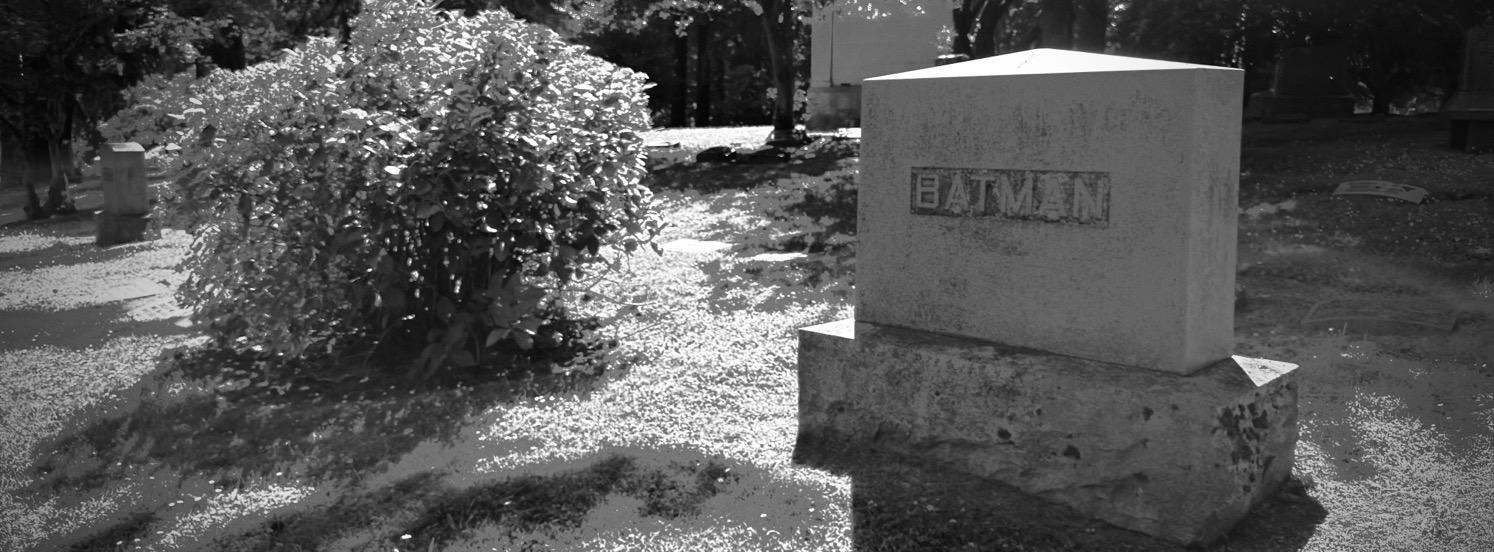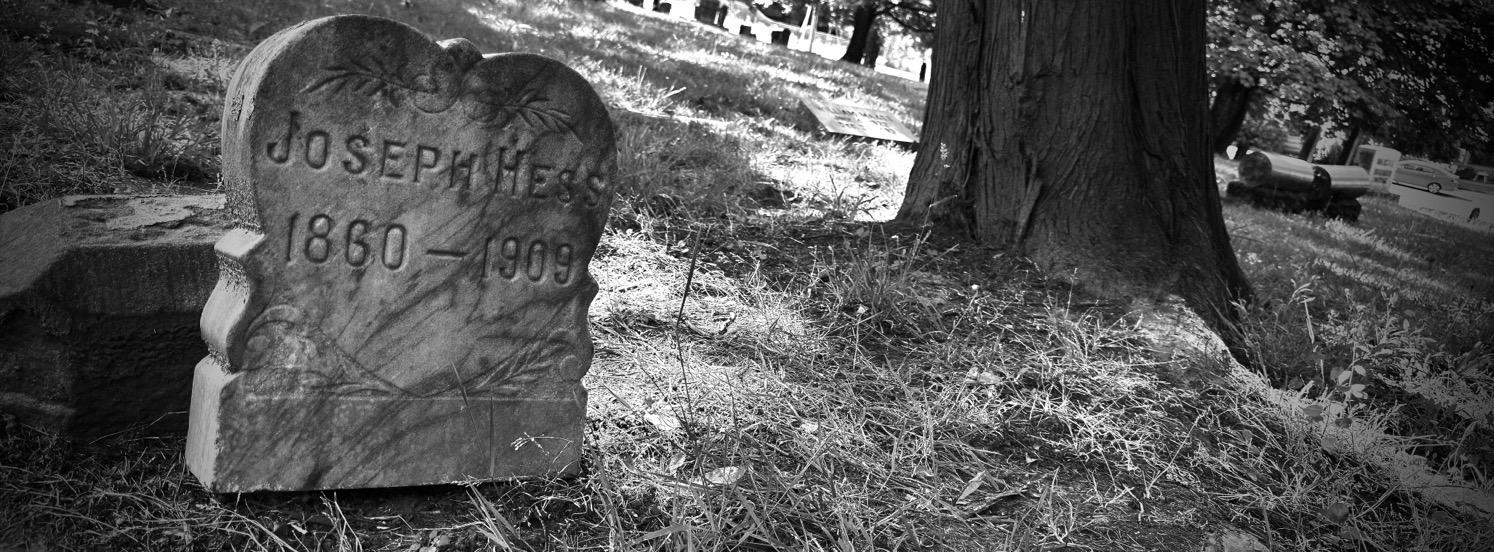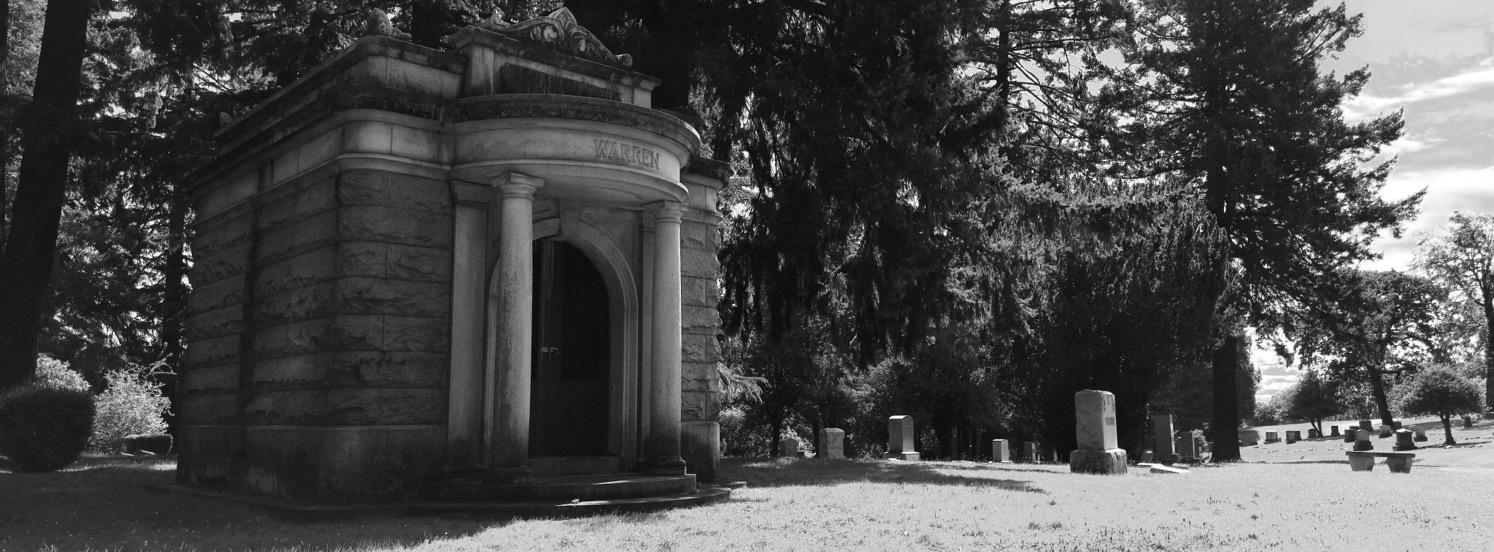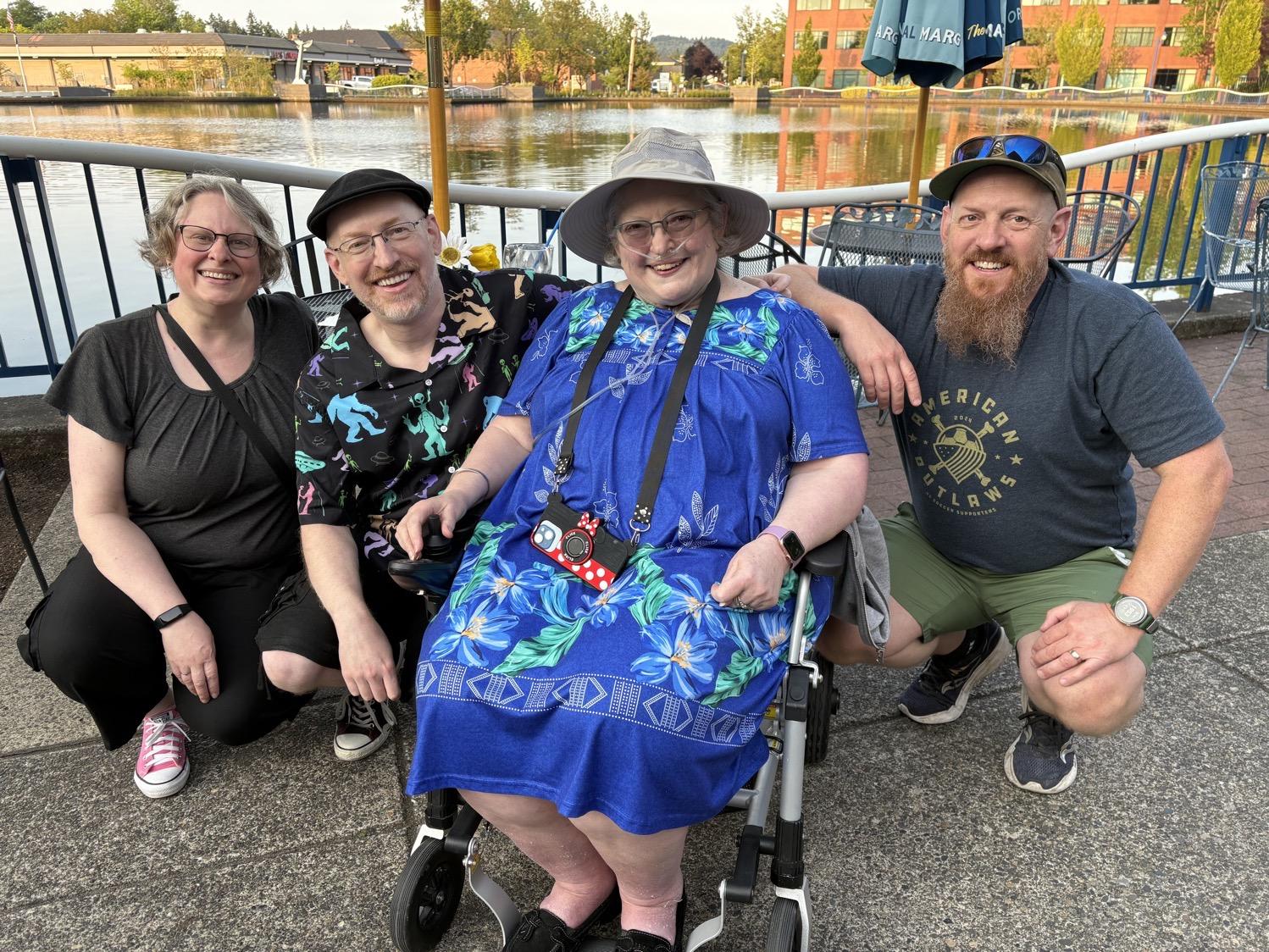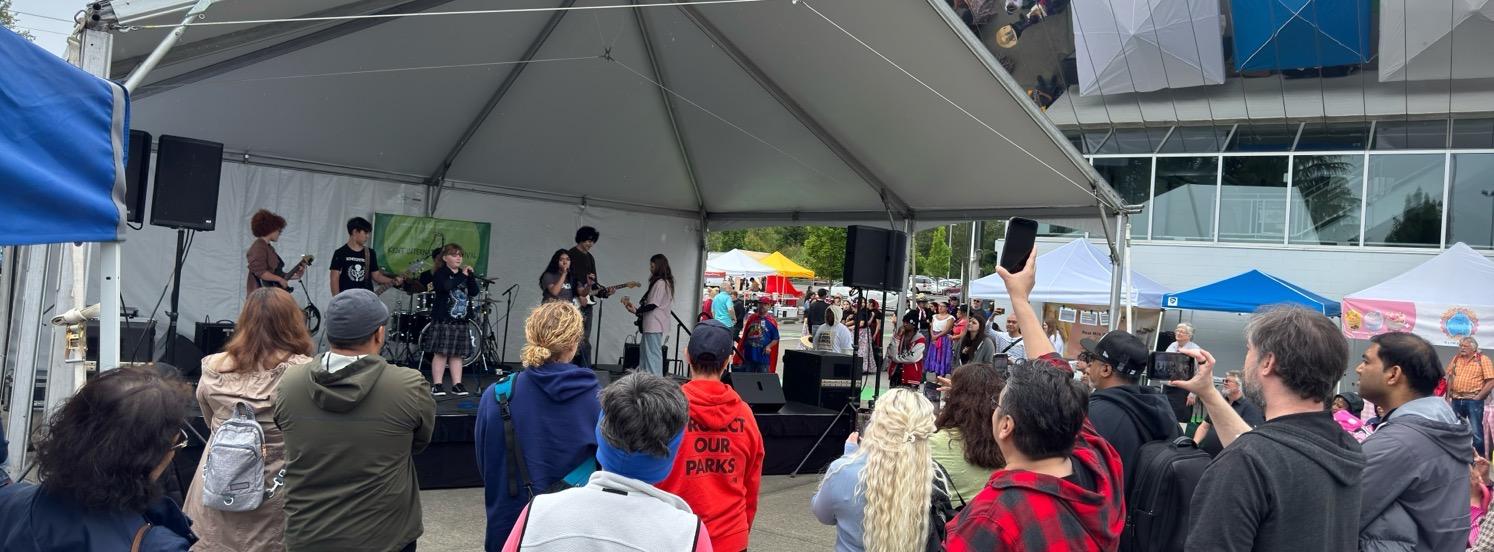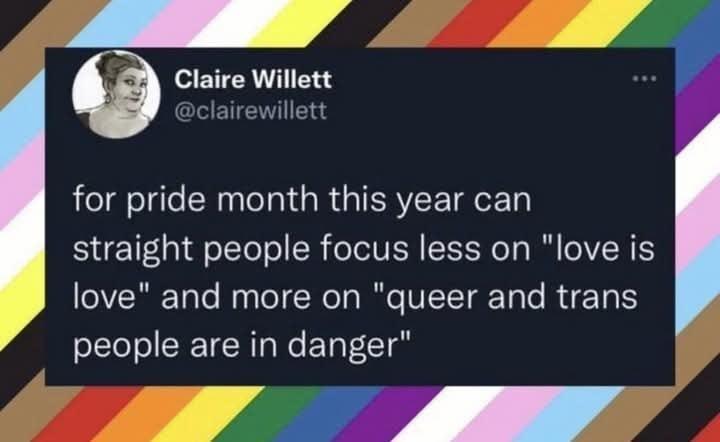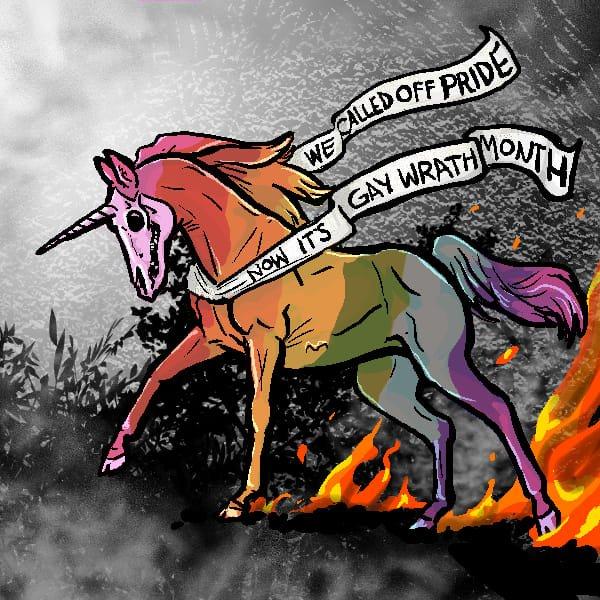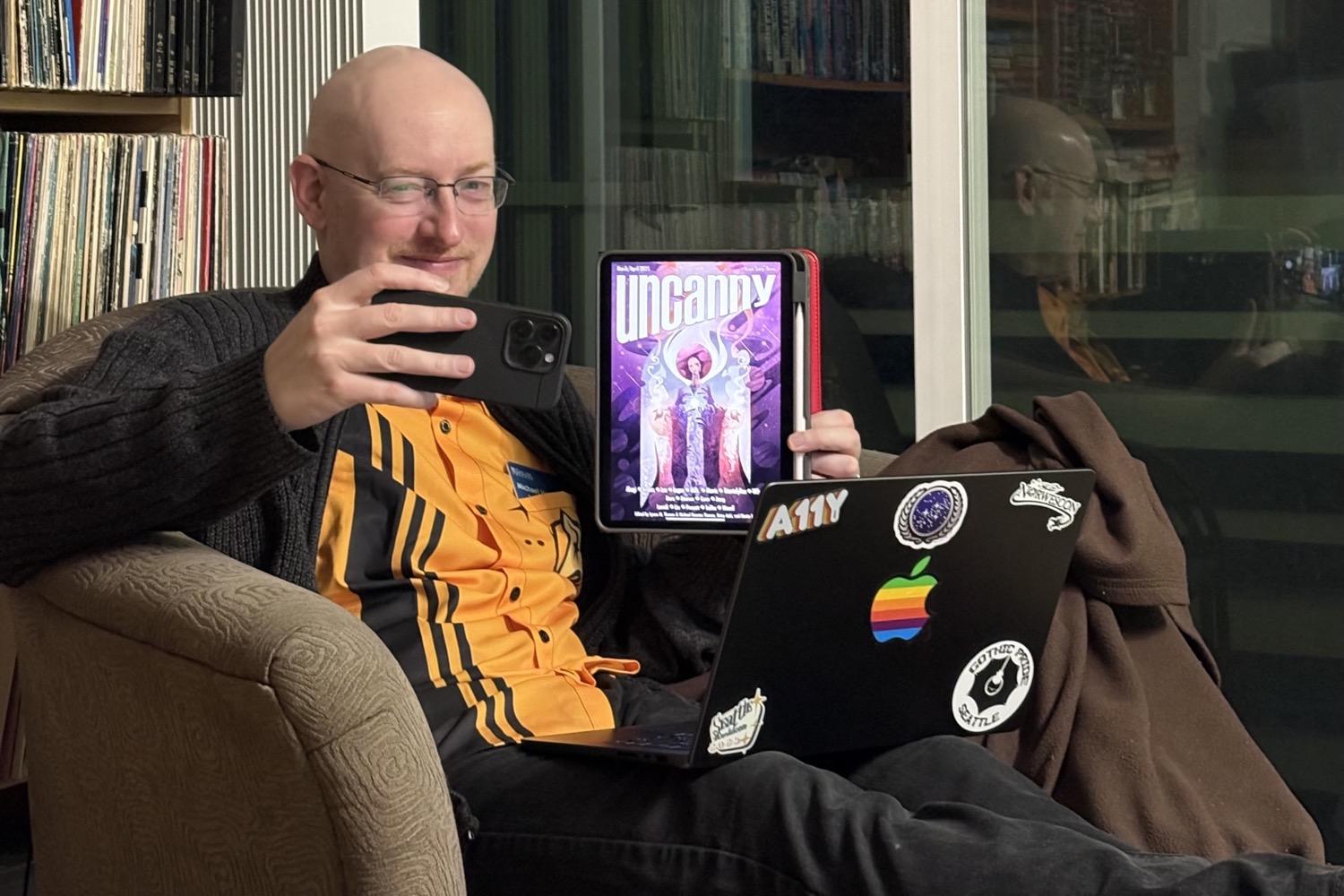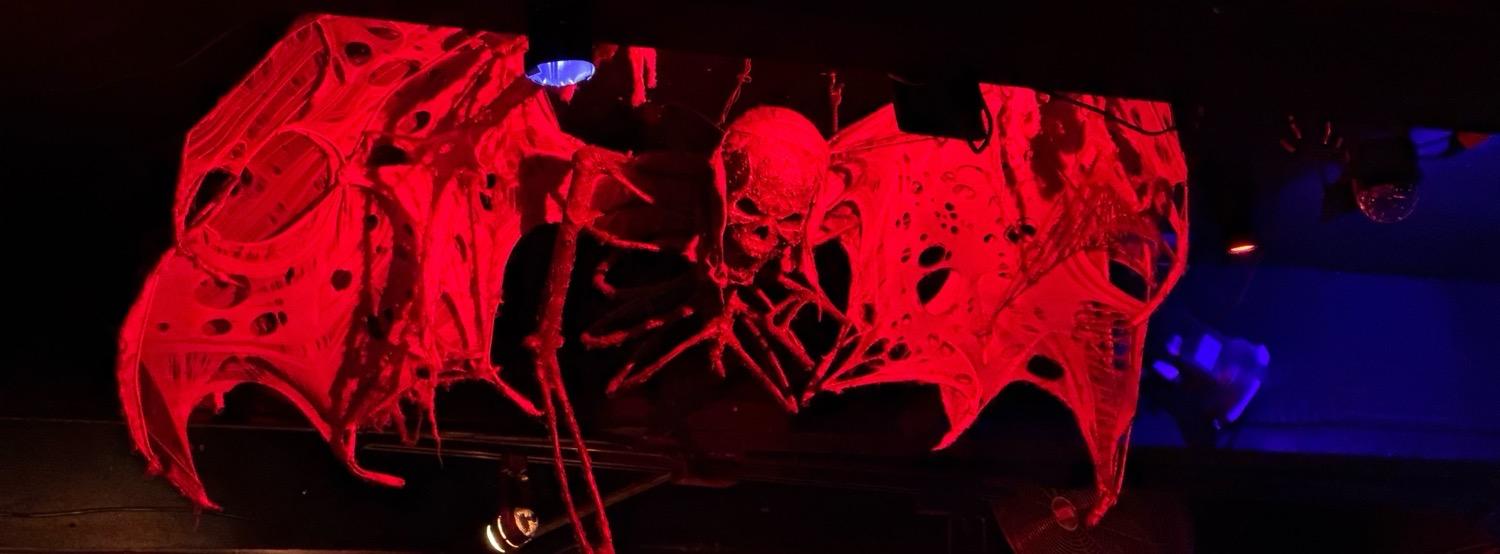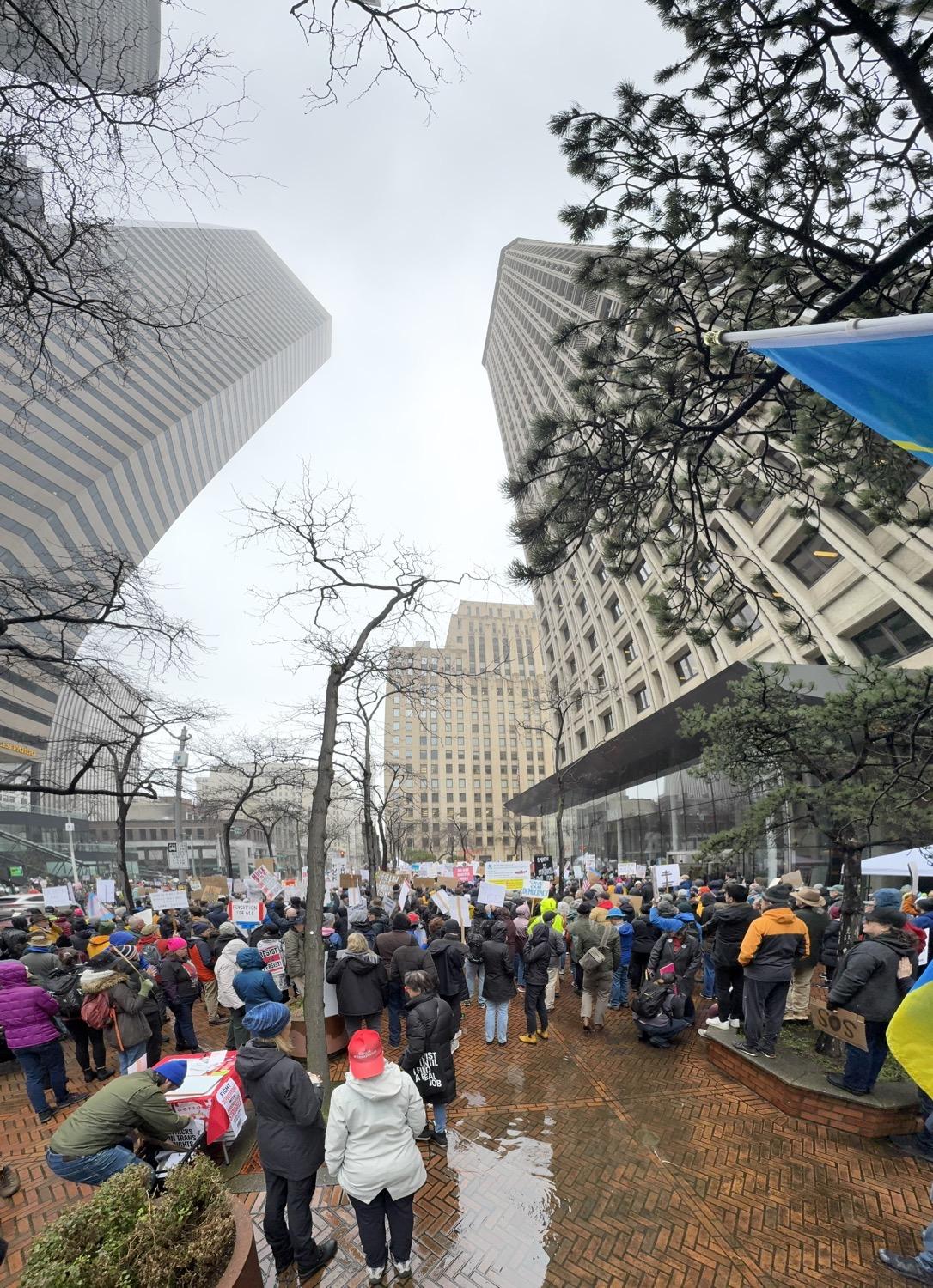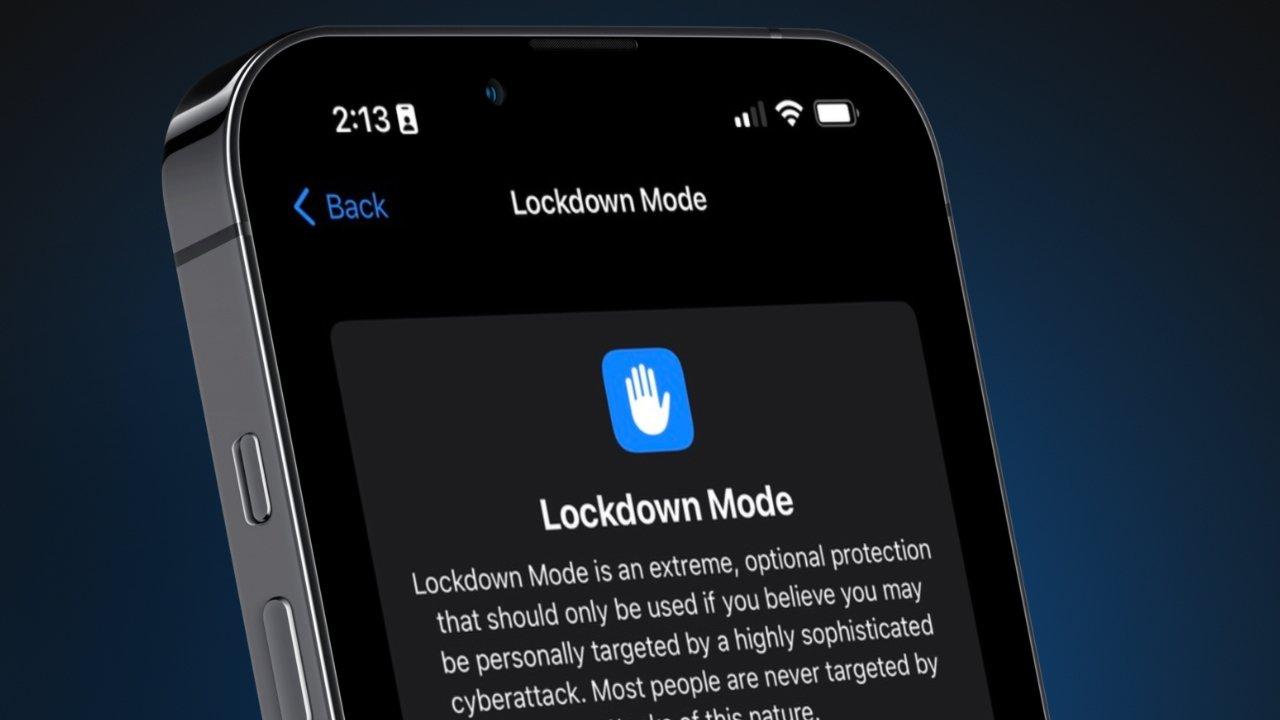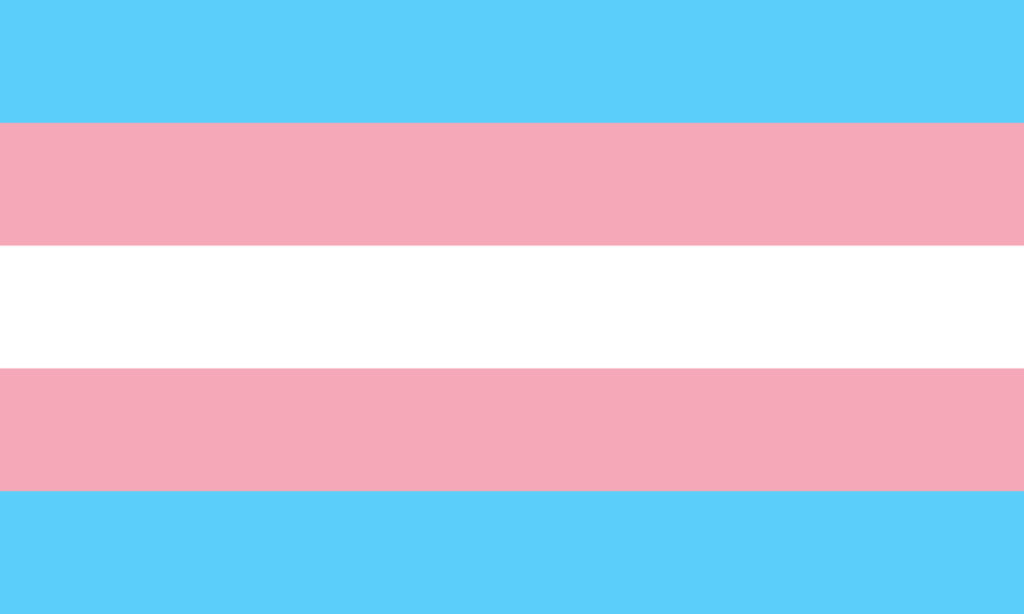As there have been Things Going On lately, I missed last Sunday’s “Weekly Notes” post, so this becomes a “Fortnightly Notes” post instead, partly because “biweekly” is vague, and “fortnight” is a term should be used more often (outside of a gaming context).
- 🏥 The major part of the Things Going On has been that two weeks ago, my wife had a (planned and necessary) hysterectomy, and I’ve been on caretaker duty. She had two nights in the hospital following the surgery, and then came home and has been recuperating here. She’s healing well, and had a good post-op checkup a few days ago, so things are going well! This does mean that our summer is going to be mostly uneventful, but that’s obviously quite okay under the circumstances.
-
♿️ Due to the aforementioned Things Going On, I’ve spent the past two weeks working remotely. I’m incredibly fortunate to have a job that lets me do that when it’s necessary, and I wish more people had the ability to do this.
-
🚀 On the convention front, the Seattle Worldcon schedule was released this past week. Since I’m our website admin, I’m quite happy with the technical side of things, as I was able to present the full 5-day schedule on a single page, filterable by day, track, or both, and with clean (for WordPress), semantic, and accessible (to the best of my ability to verify) code.
A bit of geekery:
The Javascript code that does the filtering could quite probably be improved and optimized, as it’s just a result of me digging through the web and hacking things together until it did what I wanted, and my JavaScript knowledge is just barely at the level that allowed me to figure this out. But hey, it works, and that was the most important part.
Each panel is wrapped in an
articletag, each panel title is a heading, and start and end times are wrapped in propertimetags. Panel titles are linked self-anchors so that it’s easy to link directly to individual panels, which is discoverable either by tabbing to the title or by mousing over them. Here’s a sample of the code for one (totally randomly chosen) panel:<article class="track dan eve"> <h4 id="EVE03"><a href="#EVE03">Wednesday Night Dance with DJ Wüdi</a></h4> <div class="sched">Events; Dance/Movement<br>Sheraton: Metropolitan Ballroom, <time datetime="2025-08-13T20:00-07:00">Wed. 8 p.m.</time>–<time datetime="2025-08-14T02:00-07:00">2 a.m.</time></div> <p class="desc">From dance clubs in Alaska in the '90s to being a recent regular DJ at Norwescon, DJ Wüdi spins an eclectic mix of dance tracks from across the decades. Pop, electronica/dance, wave, disco, goth/EBM/industrial, convention classics, mashups… (almost) anything goes! Already know there's something that'll get you out on the floor? <a href="https://app.limedj.com/shows/djwudi/9NWMHW">Send in your requests ahead of time!</a></p> <p class="pros">DJ Wüdi</p> </article>Keyboard navigation for the page works fine, checking it with WAVE comes up with zero errors (and 400-some “alerts”, but that’s because WAVE incorrectly thinks the panelist listings should be headers), checking with ANDI also looks good, and I was able to navigate and interact (at least as well as a non-regular screen reader user can) with VoiceOver and NVDA. This certainly doesn’t mean that there aren’t things that could be improved, but I’m pretty happy with where I got things to be.
📸 Photos


📝 Writing
- In addition to the release of the Worldcon schedule, we also recently posted lists of all of our fan tables, dealers, and artists, and I took the opportunity to talk about running a small experiment with asking for image alt text on the application forms for those areas.
- I also posted my updated schedule for Worldcon: paneling, presenting, and DJing!
📚 Reading
Read Terry Pratchett’s Pyramids and issue 65 of Uncanny Magazine.
📺 Watching
I found time for four movies, mostly in the first few post-surgery days when my wife was doing a lot of sleeping:
- The Adventure of Sherlock Holmes’ Smarter Brother: ⭐️⭐️ — Not as amusing as I hoped, given the cast.
- Bugsy Malone: ⭐️⭐️⭐️ – I’d had vague memories of kids shooting marshmallows out of tommy guns in a ’20s gangster film, and finally tracked down that memory. Odd, but entertaining!
- Johnny Dangerously: ⭐️⭐️⭐️⭐️ — Another ’20s gangster parody I vaguely remembered watching as a kid; this one is still really funny, and I realized while watching it that some old jokes I’ve had in my head for years came from this film. “You shouldn’t grab me, Johnny. My mother grabbed me once. Once.“
- KPop Demon Hunters: ⭐️⭐️⭐️ — Somehow this one popped into conversations around me, I gave it a shot, and was entertained…and suspect that it would be a good idea to make sure the soundtrack ends up in my convention DJing playlist.
🔗 Linking
-
Patrick Clark in Businessweek: American Mid: Hampton Inn’s Good-Enough Formula for World Domination: I’ve occasionally wondered about how the mid-range hotel breakfast buffet got started; this was a surprisingly interesting look at how strategically aiming for the middle of the road made Hampton Inn the US’s largest hotel chain (which I wouldn’t have guessed).
-
Lynda V. Mapes in The Seattle Times: These orcas have been trying to feed people, new research shows: “So just what are the orcas doing, offering food to people? ¶ Researchers ruled out play, because the incidents were short, lasting only about 30 seconds. And it’s mostly young orcas that play, and orcas of every age offered food. So it seems what is going on is exploration, the scientists surmised: The orcas are curious to see what happens if they offer us food.”
-
Gaurav Sood at Yanko Design: World’s Narrowest Fiat Panda is One Anorexic 19-Inch-Wide EV Destined for the Record Books: “Italian mechanic Andrea Marazzi has transformed a 1993 Fiat Panda into what is now being described as the world’s narrowest functioning car. At just 19.6 inches wide, the one-seater electric vehicle looks more like a cartoon sketch brought to life than a road-ready hatchback. Yet it can move, steer, stop, and drive like any other car.”
-
Sarah Perez at TechCrunch: Facebook is asking to use Meta AI on photos in your camera roll you haven’t yet shared: “Facebook is asking users for access to their phone’s camera roll to automatically suggest AI-edited versions of their photos — including ones that haven’t been uploaded to Facebook yet. […] To work, Facebook says it will upload media from your camera roll to its cloud (meaning its servers) on an “ongoing basis”….
-
Sitara at Sitara’s Garden: How Fantasy Fuelled 60s Counterculture: “That pirated Tolkien paperbacks hit like a bomb in 60s campuses. The bootleg copy was printed due to a loophole in copyright law and quickly became a cult phenomenon, selling over 100,000 copies in 1965 alone. The biggest fans of the book seemed to be hippies, protesters and rockstars. It makes sense when you look at the context.”
-
Laura Michet: Touching the back wall of the Apple store: “When I was in high school, my friends and I had a game we used to play at the mall: we would go into the Apple store and try to make it to the back wall of the store, touch it, and exit out the front without an Apple staff person talking to us.”
-
Elizabeth Lopatto and Sarah Jeong at The Verge: The American system of democracy has crashed: “The declaration pronounces these rights to be so important that it’s worth overthrowing a government over them. But one should not undertake revolution against a tyrannical government lightly, the declaration says, going on to provide a massive litany of complaints as justification. In modern times, the full list was considered to be the boring part of this document, lacking the vim and vigor of ‘we hold these truths to be self-evident’ and other such bars from the preamble. But this year, it’s become a… bracing read.”
-
Jason Kottke: There’s No Undo Button For Our Fallen Democracy: “America’s democratic collapse has been coming for years, always just over the horizon. But when everything that happened during Trump’s first three months in office happened and (here’s the important part) shockingly little was done by the few groups (Congress, the Supreme Court, the Democratic Party, American corporations & other large institutions, media companies) who had the power to counter it, I knew it was over. And over in a way that is irreversible, for a good long while at least.”
-
Sarah Taber on Mastodon (as a nice chaser to Kottke’s link above): “Hello Americans on Mastodon, I know we don’t feel like there’s much to celebrate this July 4th. It’s been a rough several years. ¶ So I want to talk about how we’re making history right now.”
-
Marcus Medford-Kerr at CBC Radio: These sea spiders use the bacteria on their bodies to turn methane into food: “Most sea spiders are hunters. They tend to eat anemones, worms, sponges and soft corals, getting their nutrients by piercing their prey and sucking up their internal fluids. ¶ The Sericosura spiders, on the other hand, are more like intergenerational farmers.”
-
Catherynne M. Valente in Uncanny Magazine Issue 65: When He Calls Your Name: So good, and a wonderful homage to…well, that would just be giving it away, wouldn’t it?
-
Dr David Musgrove at History Extra: “I counted the penises in the Bayeux Tapestry and I have no regrets”: what one Oxford professor found when he studied the rudest bits of the embroidery: “It’s not too often that medieval historians grab national headlines, but when you get an Oxford academic counting penises in a world-famous embroidery, you’re sure to arouse media attention.”
-
Randee Dawn: 7.07.25 Why most SFF cons need fixing, and how CONvergence can show the way: I’m actually pleased to see that Norwescon is already doing or working on several of the suggestions in this post. That said, there’s more we can do to ensure that we’re around for our 50th year (not too far away!) and beyond.
-
Daniel Villarreal at LGBTQNation: GOP erases all mentions of bisexuals from Stonewall Monument webpages: “Transgender journalist Erin Reed noted that the Stonewall National Monument page once said, ‘Before the 1960s, almost everything about living openly as a lesbian, gay, bisexual, transgender, or queer (LGBTQ+) person was illegal.’ The newly revised version says, ‘Before the 1960s, almost everything about living authentically as a gay or lesbian person was illegal.'”
-
Marcin Wichary: Frame of preference: A history of Mac settings, 1984–2004: “Join me on a journey through the first twenty years of Mac’s control panels.”

